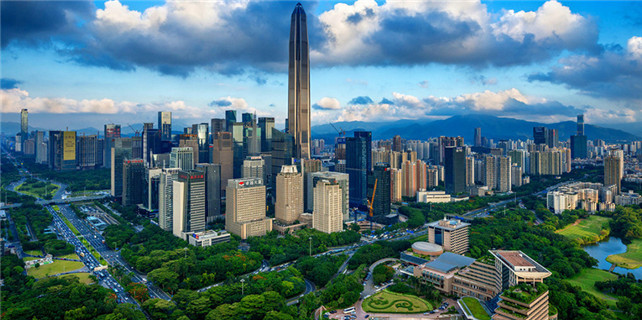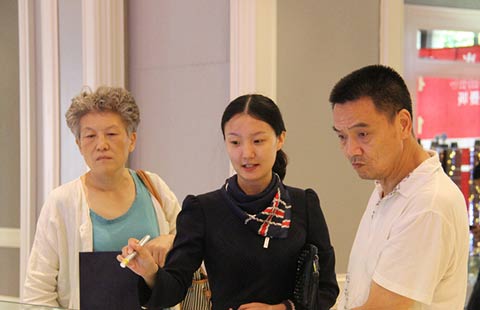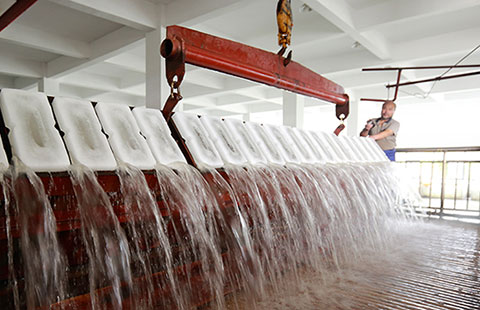Experts to offer G20 policy recommendations at summit
By Wang Ying (China Daily) Updated: 2016-07-29 11:11Experts from both Chinese and overseas think tanks plan to offer policy recommendations to G20 leaders in the form of a proposal document.
The document, titled "T20 Policy Recommendations to the G20", which is expected to be released at the ongoing Think 20 Summit, the last session in a series of T20 events held this year, is an innovative move, said Huang Wei, director of the Department of Global Governance at the Institute of World Economics and Politics under the Chinese Academy of Social Sciences.
"It will be the first time that the T20 has made such a policy proposal in this way," Huang told China Daily prior to the T20 Summit, which opens on Friday and will last through Saturday.
The T20 is a mechanism by which experts and scholars from think tanks in the G20 member countries, and others, contribute wisdom and insights to the G20 dialogue.
The country holding the annual G20 presidency generally names a think tank within its territory to be responsible for the T20 events throughout that year.
"Compared with the previously loose cooperation between the T20 and G20, we wish to make a greater and more solid contribution to the upcoming G20 Summit this year," Huang said.
As a participant in drafting the document, Huang said the policy recommendations to the 2016 G20 Leaders' Summit, scheduled to be held on Sept 4 and 5, will mainly focus on economic issues.
"We present a global economic outlook and major risks in the first part of the document to allow for a better understanding of the overall context for development trends," she said.
In the following section, experts propose recommendations from the perspectives of enhancing global economic growth potential, improving global financial governance, facilitating international trade and investment cooperation and promoting inclusive and sustainable development.
"In addition to focusing on issues on the G20 agenda, we'd like to offer a further perspective on where the cooperation mechanism will go in the future," Huang said.
Thus, the recommendations also cover G20-related engagement groups, which "reflected the G20's attention to certain types of people and issues", she added. Under the G20 umbrella, the B20 is related to the business community, the T20 gathers think tanks, the C20 features dialogues with civil society organizations, and the Y20, W20 and L20 are concerned with issues affecting young people, women and labor respectively.
"It shows that the G20 mechanism is growing into a more diverse and more inclusive cooperation platform," Huang commented.
As the last leg of this year's T20 event series, the summit, co-organized by three Chinese think tanks-the Institute of World Economics and Politics, the Shanghai Institutes for International Studies and the Chongyang Institute for Financial Studies-has attracted some 500 renowned experts and scholars, including more than 170 from overseas.
The three coordinating think tanks for this year's T20 series held nine meetings with their overseas peers in China and other countries including the United States, Germany, Switzerland and India from last December to June.
After in-depth discussions on such topics as global economic growth, innovation and structural reform, and international finance, trade and investment in previous sessions of the T20 series events from November to June, experts have offered valuable suggestions and solutions, which have been included in the policy recommendations, Huang said.
"Experts have high expectations for the 2016 G20 Hangzhou Summit and believe that a sound and robust Chinese economy will have a positive effect on, and will continue to make a great contribution to, the global economic recovery," according to the recommendations.
"China has no interest in seeing a fundamental change in the global governance pattern," Huang said. "I hope that international organizations will play a more prominent role in the global governance landscape."
- Experts to of er G20 policy recommendations at summit
- Thinking outside the box for future growth
- T20 to help produce new global vitality
- Lights add 'unforgettable' scenes to visitors' night life
- What will China's G20 presidency bring to the world?
- G20 summit seeks to promote innovation, global governance, says expert
- China Aviation Oil net profit soars 48.6% in H1
- DHL announces massive China-related expansion in Chicago


















